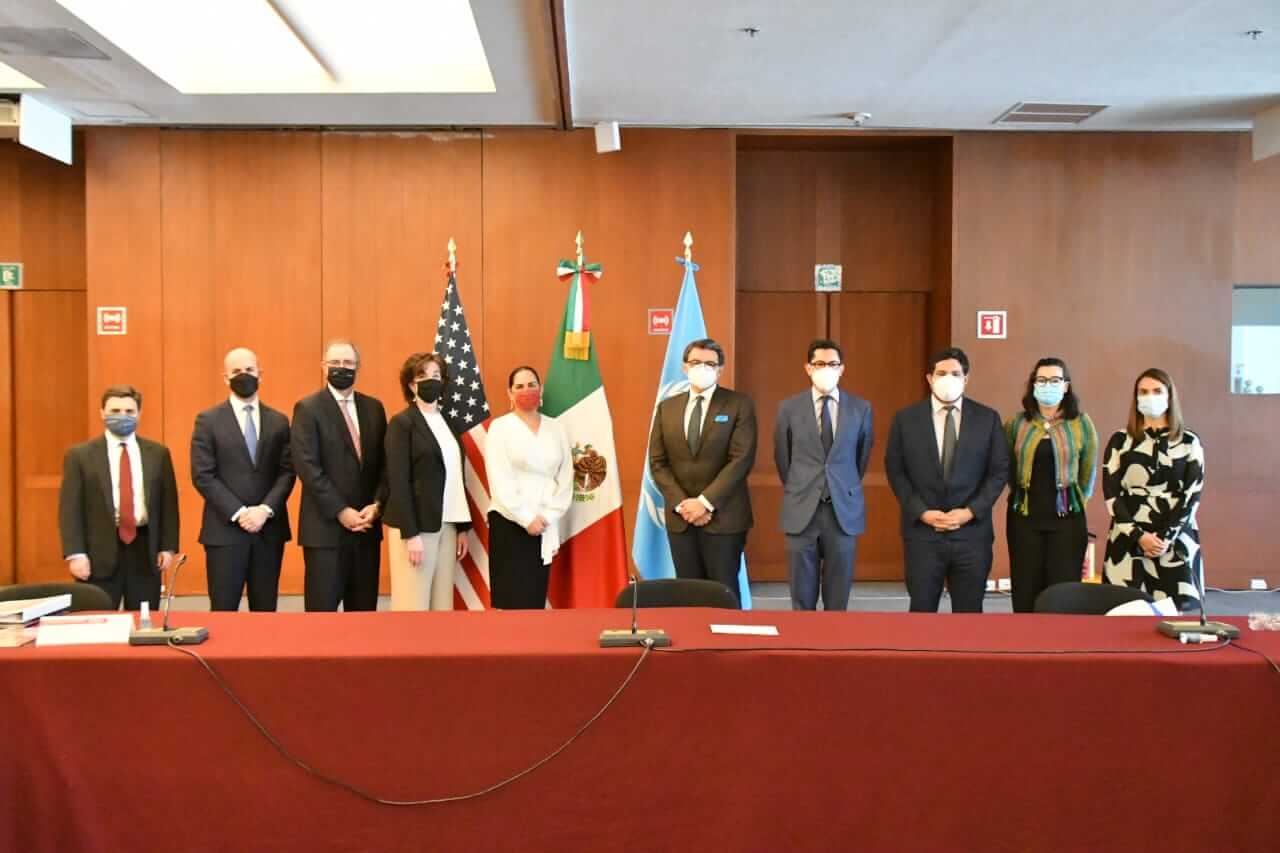Representatives from the United States (US) and Mexico held a series of meetings in Mexico on Tuesday to discuss issues related to migration and regional development, amid a migrant surge at their shared border.
According to a statement released by the Mexican foreign ministry, the talks intended “to advance both the international cooperation agenda for development and the mechanisms for migratory cooperation, so that migratory flows in the region are orderly, safe, and regularised.” The American delegation comprised former US ambassador Roberta Jacobson, the White House’s lead adviser on the border, and Juan González, the National Security Council’s senior director for the Western Hemisphere. They were also accompanied by Ricardo Zúñiga, the US Special Envoy for the Northern Triangle.
Biden’s promise to take a more humane approach to immigration – by reversing multiple harsh Trump-era policies – is being increasingly tested amid a sharp rise in the number of people seeking to enter the country illegally. According to Pew Research Center, last month, 18,945 family members and 9,297 unaccompanied children were encountered by border officials, marking an increase of 168% and 63% respectively from January. While the Biden administration has been criticised for confusing messaging on the issue, Mexico has also come under pressure to do more to slow the movement of migrants across its territory.
In a meeting with Mexico Foreign Affairs Secretary Marcelo Ebrard, the officials discussed mechanisms for the protection of human rights of migrants (especially infants), along with humanitarian actions that would promote “inclusive economic development in the north of Central America that mitigates the root causes behind migratory flows in the region.” Jacobson also tried to dissuade people from coming to the border, emphasizing that it was closed. “Stay at home, stay safe and wait for more information about the asylum process,” she added.
In another meeting on Tuesday, US representatives met with officials from Mexico’s international development agency, and the United Nations Economic Commission for Latin America and the Caribbean (ECLAC). The Executive Secretary of ECLAC, Alicia Bárcena, virtually presented a project developed by UN agencies in partnership with the governments of Mexico, Guatemala, Honduras, and El Salvador, focusing on economic development, social welfare, climate change, and migration. According to the Mexican foreign ministry, the participants agreed to enhance cooperation to “stimulate the regional economy in a more equitable way, and thus reduce migratory flows from Central America.”
Finally, US officials met with leaders from the National Migration Institute (INM), which oversees migration within Mexico. They discussed “the challenges of designing a migration model that protects human rights, as well as the need to implement incentives to achieve the shared goal of safe and regular orderly migration.”
US, Mexico Discuss Immigration Amid Migrant Surge at Border
The talks aimed "to advance both the international cooperation agenda for development and mechanisms for migratory cooperation so that migratory flows in the region are orderly, safe and regular."
March 24, 2021

SOURCE: TWITTER (@SRE_mx)
